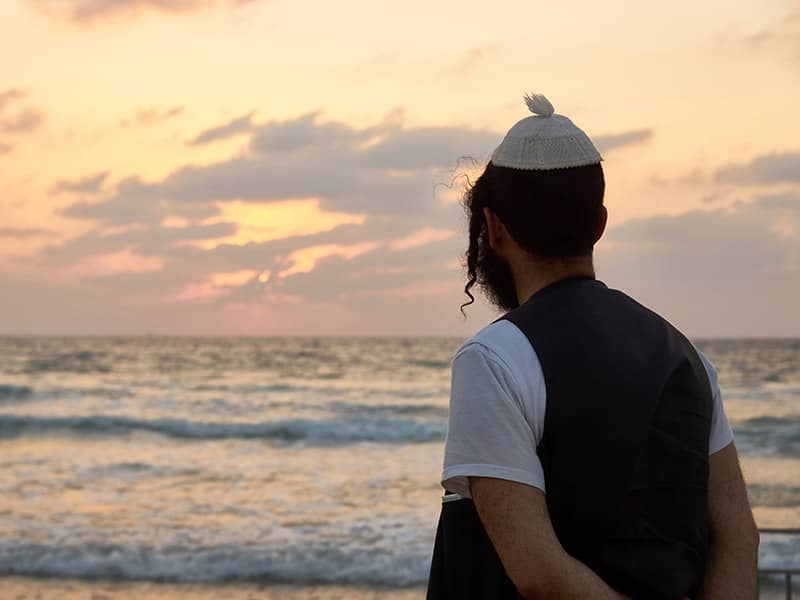I don't feel like sweetening my already sweet apples. Like the custom of leaving a corner of a room unpainted or breaking a glass at a wedding, this year, I'm thinking of dipping my apples in salt. I'm just thinking about it.
Should our experience of crisis change how we observe Jewish holidays?
Primary Text:
Babylonian Talmud, Yoma 69b:
R. Yehoshu'a ben Levi said: Why are the members of the "Great Assembly" called that? Because they restored a crown to its former glory. Moshe said "God, the great, mighty, and awesome." Jeremiah came and said, "Non-Jews are dancing in the Temple! Where is the awe?" So he did not say "Awesome." Daniel came and said, "Non-Jews are enslaving God's children. Where is God's might? So he did not say "Mighty."
Along came [the members of the Great Assembly] and they said, "To the contrary, this is God's might, that God conquers the negative impulse and shows patience with the wicked [who can repent]. And this is the awesomeness of God, for if they were not awe of the Holy Blessed One, how would one nation have been able to exist among all of the other nations.
And [Jeremiah and Daniel], how could they do what they did and uproot the formula that Moshe established? Rabbi Elazar said: Since they knew that the Holy Blessed One is Truth, therefore, they could not lie.
This text, which can be approached at a variety of levels, asks the basic question of whether our liturgy (and by extension, our entire ritual practice) can stand unchanged in light of our personal, communal, and national experience of disaster. For Jeremiah and Daniel, who personally experienced the destruction of the Temple and the Babylonian exile, the apparent absence of God's might or the fear of God was too immediate and obvious. But by the time of the return under Nehemiah, enough time had passed to allow for a re-interpretation of God's attributes.
Indeed, we can still rely on the re-interpretation of the Great Assembly. God doesn't intervene and still hopes for communal and individual repentance. Maybe those who feel that their political agendas are better expressed through hatred and terrorism will do repentance. Maybe it is awesome that, as the President has said, America is back at work today. Our government, our military, our financial system are all resilient enough to continue even after these attacks.
Activity:
Discuss whether rituals should (or can) be changed. Discuss the custom of simanim (signs)--we eat food and make puns or associations that indicate our hopes and desires for the new year (see Shulhan Arukh, Orah Hayyim 583:1-2). Traditional ones include eating:
Can we change these customs (like putting salt on our apples) or add to them to express our bitterness or our anxiety? See if your students can come up with suggestions, in Hebrew or in English.
One possible suggestion is that instead of having large, round hallot (festive loaves) which we share, we give each person a small round whole loaf (a bread that is shalem--whole) and that we recite the following (creatively translated) excerpt from the prayer for journeys (punning on shalom--peace and shalem--the whole loaf).
May it be Your will, O Lord our God, and God of our ancestors, that You lead us to peace, step by step to peace, making pathways for peace, arriving at the place of our desire which is to live, to have joy, and to have peace.
Or, using a pun in English, everyone could recite this before having a piece of pizza.

